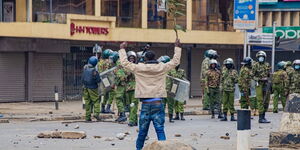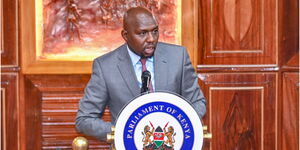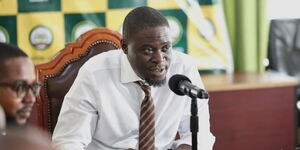The High Court, on Wednesday, reinstated the safe abortion guidelines that the government, through the ministry of Health, had abolished.
The five-bench judge consisting of Aggrey Muchelule, John Mativo, Lydia Achode, George Odunga and Mumbi Ngugi ruled that abortion remains illegal in Kenya but at the same time quashed the Ministry's directive that withdrew the national guidelines for the procedure.
Odunga, in his statement, indicated that Kenya was part of the Maputo protocol and that allowed women to seek abortion services in cases where they get pregnant through sexual violence.
"States Parties shall take all appropriate measures to protect the reproductive rights of women by authorising medical abortion in cases of sexual assault, rape, incest, and where the continued pregnancy endangers the mental and physical health of the mother or the life of the mother or the foetus," reads a section of the Maputo protocol.
"In regards to what should be termed as health of mother, we rely on medical descriptions that state it is the social, mental and physical state. Therefore abortion is permitted where the health of a mother is at risk as determined by a trained medical professional," stated Odunga.
The judges further questioned the manner in which the guidelines were withdrawn by the Ministry noting that it didn't follow the right process.
“The guidelines were public policy documents that were passed through a process that involves public participation. The withdrawal should have followed the same procedure,” added Ngugi
In 2018, the Federation of Women Lawyers (FIDA-Kenya) and the Centre for Reproductive Rights sued the ministry of health for withdrawing standard guidelines on safe abortions.
The ministry had instructed health workers to stop attending workshops after stakeholders failed to agree on which terms were to be considered before an abortion request was granted.
FIDA argued that the directive barred the health workers from accessing medical information through training, develop skills in life-saving and abortion care.
The group explained that the mothers were more at risk as they were forced to seek abortion services from quacks who were likely to harm them when it would have helped for the ministry to offer advice to health workers when it was safe for them to perform an abortion.
The ministry had, however, maintained that it was illegal for any form of abortion to take place under the Kenyan constitution.
The mother of the woman, identified as JMM, whose abortion procedure was the ground on which the abortion case was built on, was awarded Ksh3 Million by the court.
JMM got pregnant through sexual violence and when she attempted to procure an abortion through a quack doctor, she bled profusely to death.
Her kins' attempt to take her to government facilities bore no fruit as she could not get post-abortion care from the three hospitals she visited.
The government was ordered to foot the compensation.












